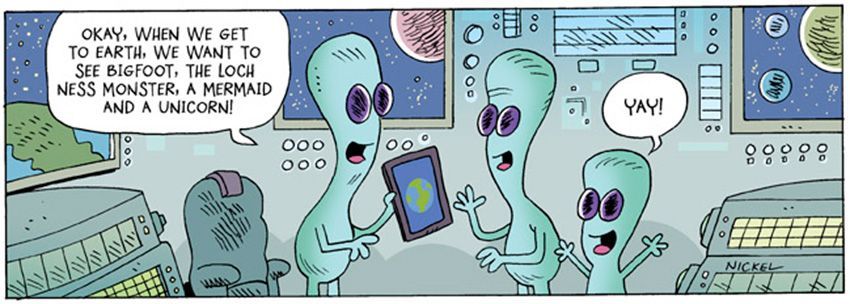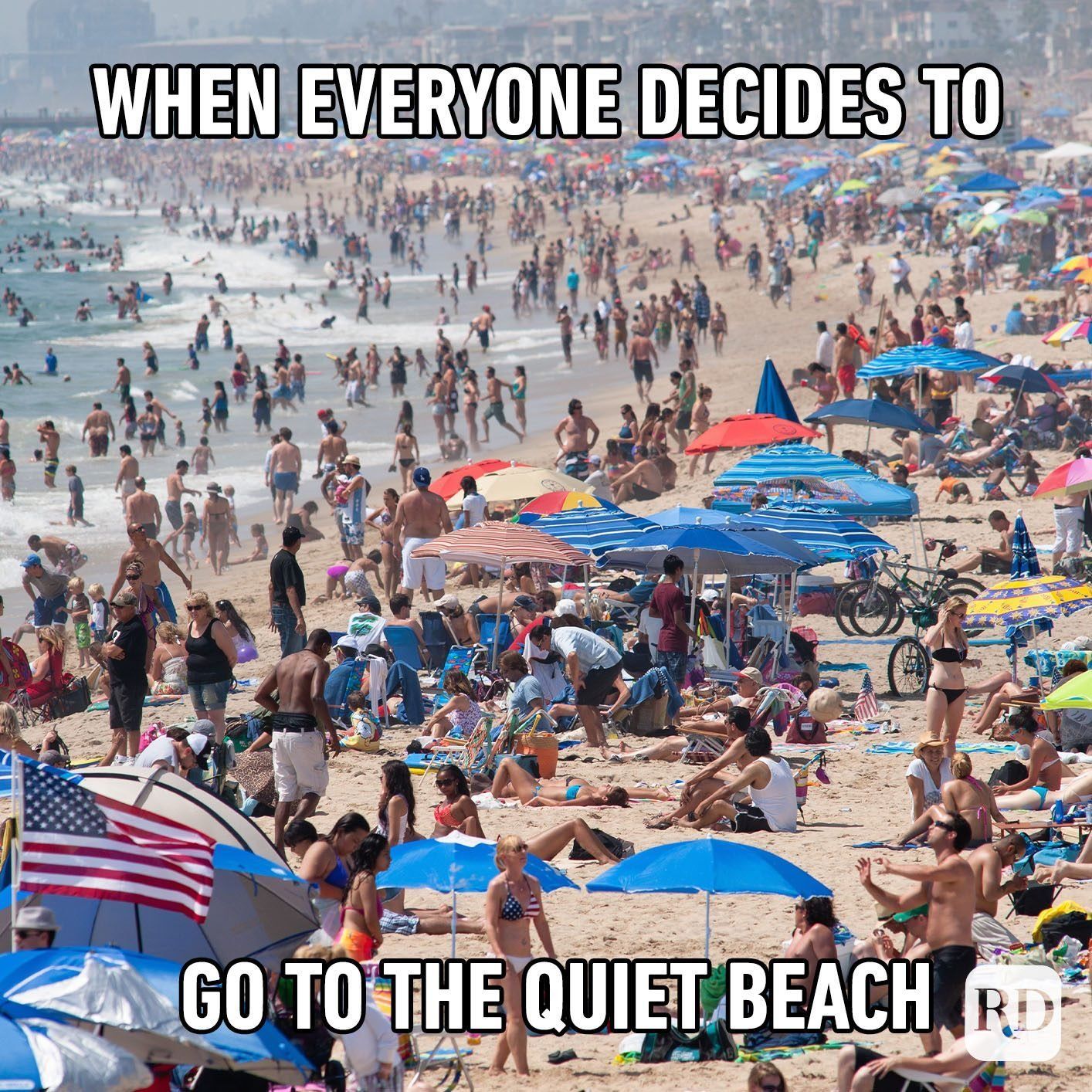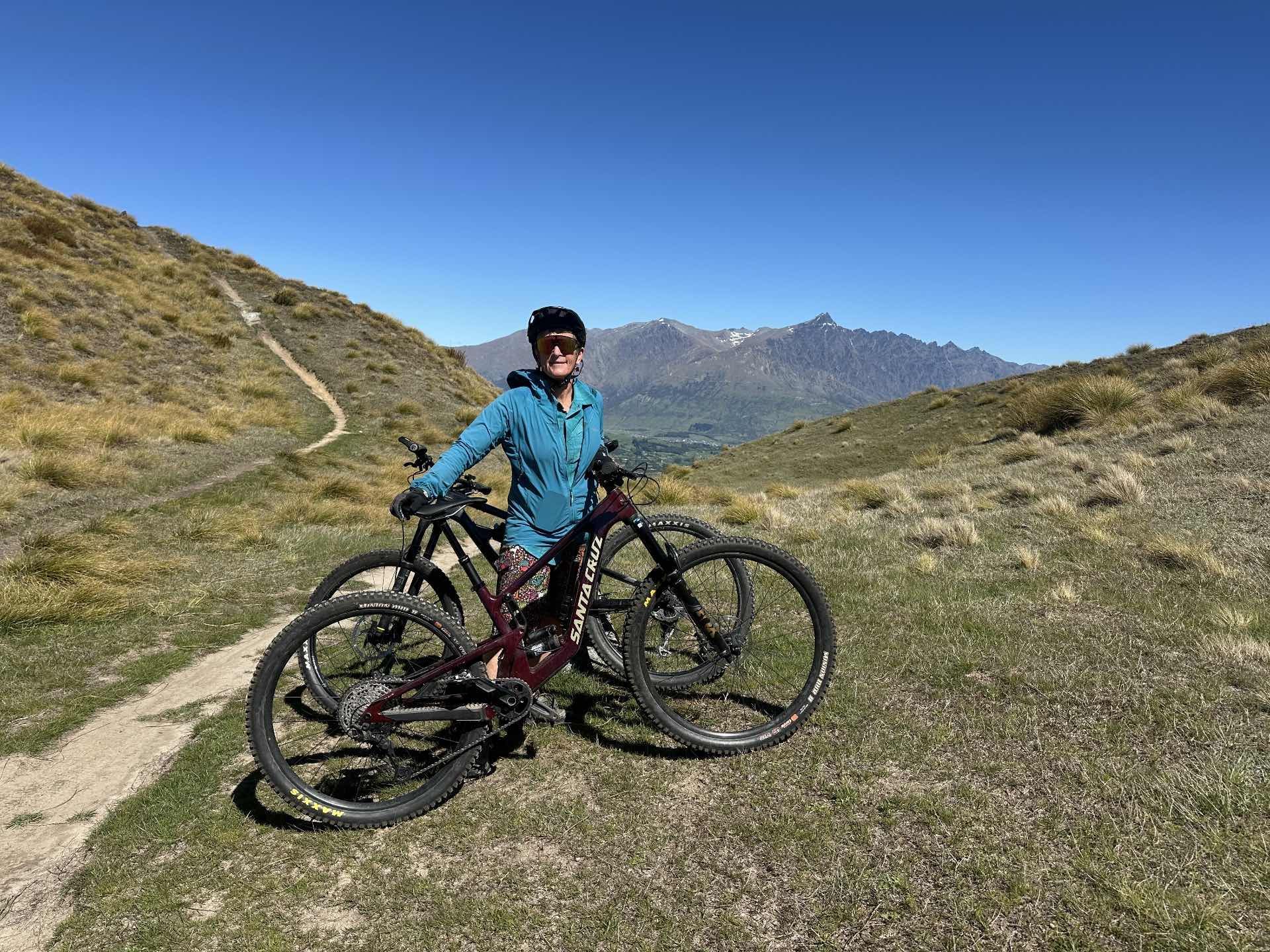Tourism & Colonialism
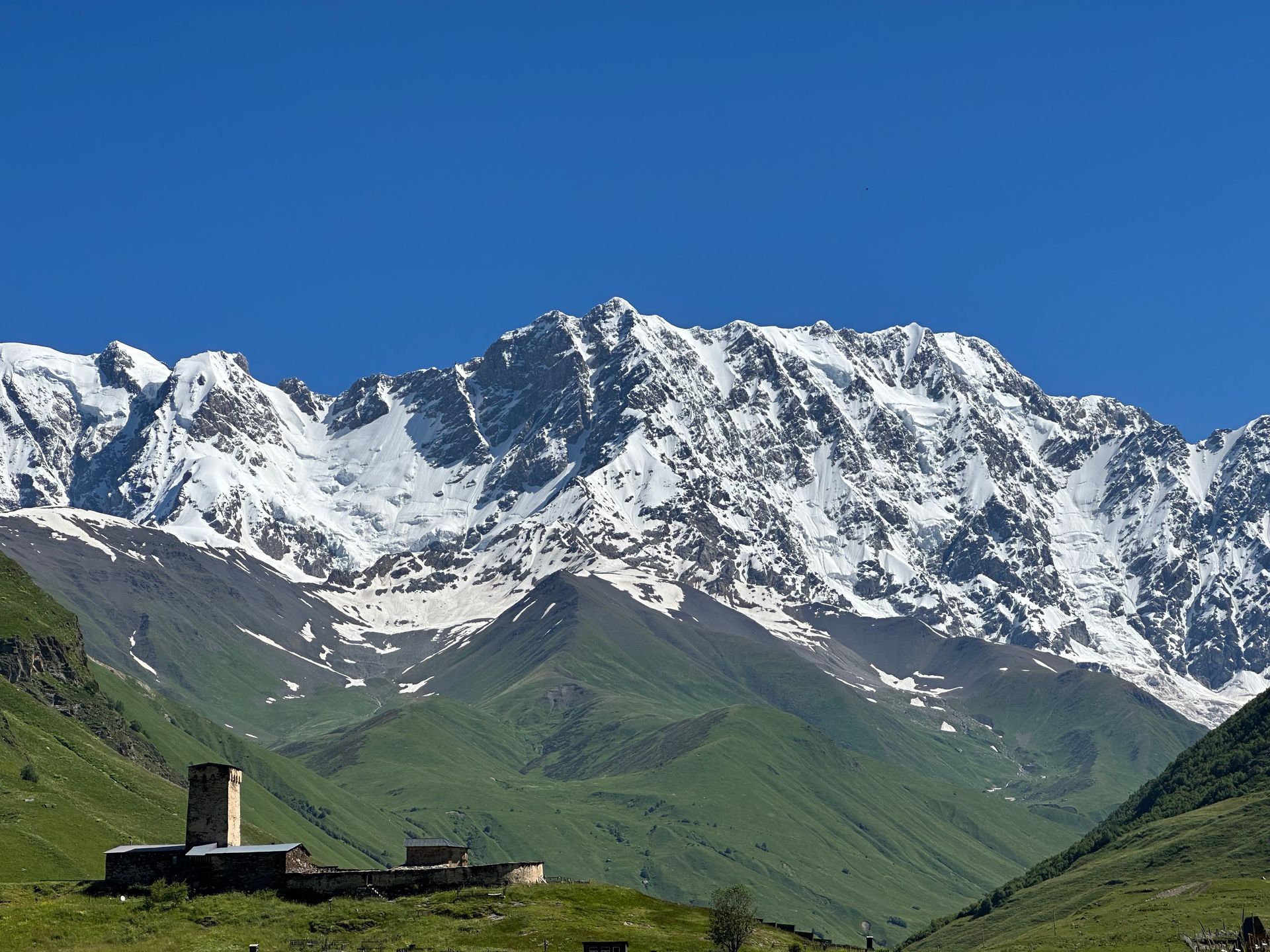
Mt Ushguli 4632m in the Upper Caucasus Mountains
Ushguli sits in an outstanding landscape. The town itself is attractive to the tourist’s eye because of stone towers that protrude from clusters of buildings - mostly dating from the 9th to 13th centuries. The towers were where families retreated when threatened by invaders from other lands (including Assyrians, Macedonians, Persians, Romans, Byzantines, Arabs, Turks, and Mongols) or when threatened by other local families - blood feuds were common between Svan families. Precious possessions were kept in the towers, which are 4-6 stories high, and worked as watchtowers as well as a place that could be defended from the upper floors.
Tourism blurbs proudly state how the Ushguli towers, and their associated houses, have withstood the ravages of time and development because Ushguli is so inaccessible. However, Ushguli is currently 6km away from rampant tourism; that’s how far away the concrete road is from the town. Once Mestia, the town we are currently in, was accessible by sealed road, nearby Ushguli was always going to be in the tourism sights. The region, Svaneti, is Georgia's crown jewel tourism destination because of its stunning mountainscape, history and food. A focal point for tourism, such as Mestia, always engenders a spread of effect away from that point.
Svaneti has long been a tourism destination. We met Natalia (an amazingly vibrant 84 year old) a few days ago in Mele. Natalia grew up in the Soviet Union and said the Caucausus Mountains, including Svaneti were where Russians wanted to go in the days of the Soviet Union, because Russia was flat and geographically boring. Russians certainly still want to come here – there are many Russian visitors, with about 20% each of Russians, Armenians, Azerbaijanis, Turks, and 20% all others, coming to Mestia as international tourists. Mestia sprawls along its valley and the traditional architecture is lost in a morass of new hotels and guest houses.
On our way to Ushguli and from Ushguli to Mestia, we cycled through massive road construction efforts. Georgia’s aim is clearly to connect Ushguli and Mestia with the 3rd largest city Kutaisi (a major budget airline destination) on a loop of sealed road. Currently, the sealed road reaches Mestia and is 6km from Ushguli on the west side and 20km away on the east side. Not much rough road left ‘protecting’ Ushguli from the next step up in tourism. It won’t be long…
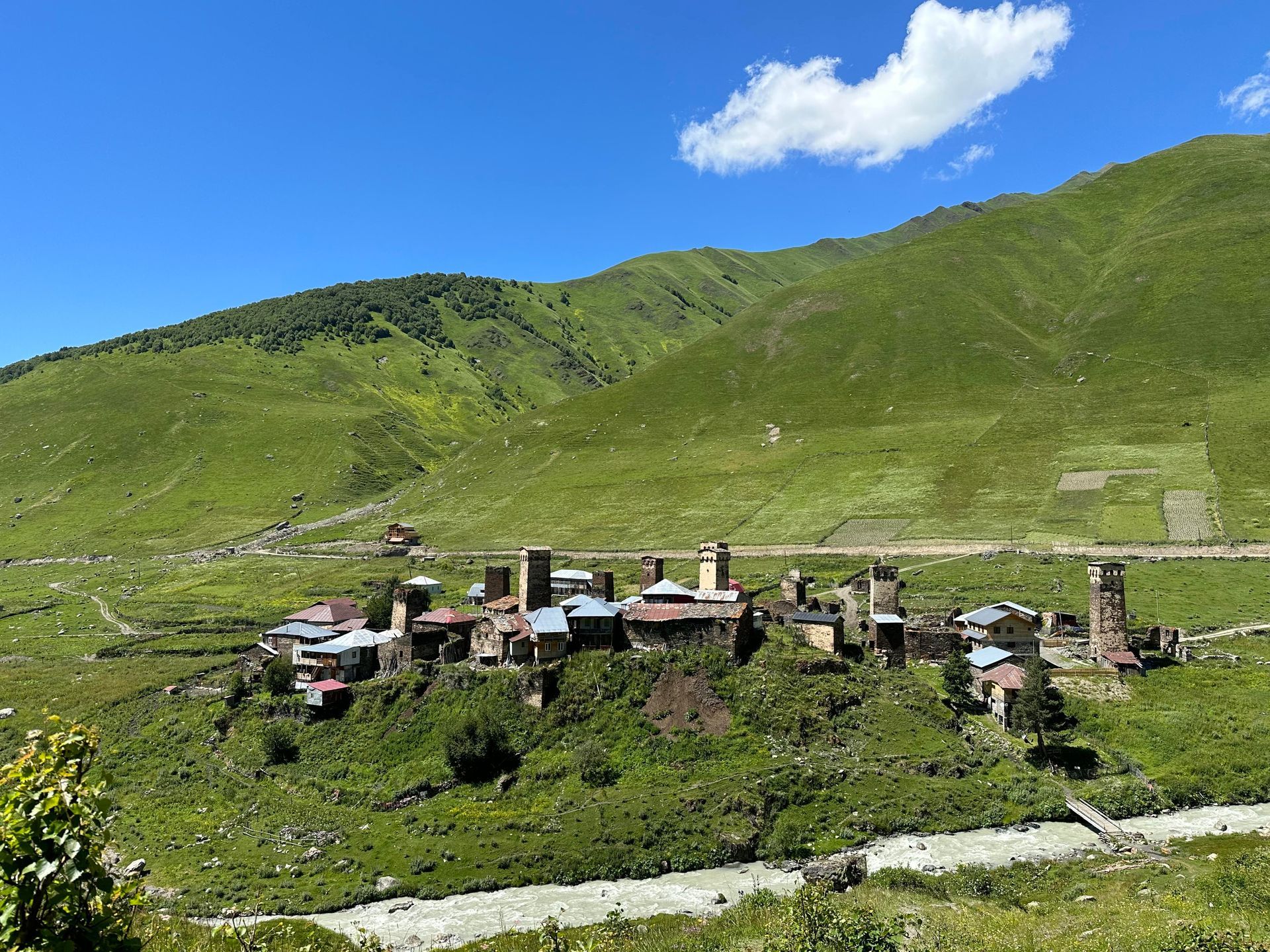
One of the five villages making up Ushguli

Part of the Mestia conurbation which stretches out in both directions along the valley
But who am I to wish rough roads on Ushguli? I’m sure people from Ushguli would like an easy way to get to medical facilities and access better education for their children. They would like building materials to be easier to come by and wood to be cheaper – at present it costs 3000 Lari for a winter load of firewood (about 1900 NZD) and the average wage in Georgia is 14 Lari an hour. Ushguli houses are heated and cook solely on wood stoves.
What I don’t wish for Ushguli is mass tourism, though I’m sure many people in the area wish for more tourism, just like they wish for the sealed road, because tourism brings money that no other endeavours around the area can achieve. Beyond tourism, the main occupation is subsistence living – growing crops and animals to eat and trade. No one is going to get rich off subsistence living. Although judging by New Zealand, most people involved in tourism aren't going to get rich off working in the tourism industry either.
When we cycled away from Ushguli and crossed from dirt road to smooth concrete, I was pondering the myriad of issues around tourism and was struck by the parallel that seems to exist between colonialism and tourism. I’m not the first to think about this, of course. I found a great quote from a book, ‘Devil’s Bargains: Tourism in the Twentieth-Century American West’ by a guy called Hal K. Rothman; “Tourism is the most colonial of colonial economies, not because of the sheer physical difficulty, or the pain or humiliation intrinsic in its labour, but because of the psychic and social impact on people and their places. Tourism and the social structure it provides transform locals into people who look like themselves but who act and believe differently as they learn to market their place and its, and their, identity.”
The above quote summarises my thoughts exactly. I think about tourism a lot because we live near the hub of NZ tourism, I’m sad about the way tourism visibly destroys community, and Chris and I practice tourism. Supposed upsides of tourism include:
- Income/jobs in remote areas with few other types of employment. Related, tourism provides an incentive for younger people to remain in locations they would otherwise leave to seek employment.
- Tourism creates understanding between different peoples and understanding reduces conflict.
In terms of understanding, it's often one-way (the tourists get to know more about the place toured rather than imparting much knowledge about where they come from) and there’s a tourism scale beyond which which local people are overwhelmed by tourists, so are no longer interested in interacting. That's how I feel living near a tourist town. I don't want to talk with all, or even some, of the millions (literally) of tourists who flood through Queenstown. They'll be around for a day, or a week, then gone. When we hosted cycle tourists (for free), and were getting a new group every night or two, we got tired of going through the same conversation with every new person/group. It takes a considerable amount of time before you go beyond the initial 'getting-to-know-you' conversation and people had left before that sufficient time had passed.
In terms of income and jobs, tourism jobs tend to be unskilled, not pay well, and we have seen the industry's vulnerability to outside shocks during the COVID pandemic. Further, are these jobs an acceptable trade for the social losses incurred as a result of tourism?
Tourists want people and places to look and be ‘authentic’, so people play-act the 'authentic' that tourists want to see which, of course, is not authentic at all (as noted in the quote above). The play-acting becomes normal behaviour – people's behaviours are morphed by tourism and often, I'd suggest, without people realising what is happening to them. I'm sure this is not what people expect when they wish for an increase in tourism in their locality.
The morphing of behaviour is directly related to the parallel between tourism and colonisation. Tourism locations become places for the relatively wealthy of the world to marvel at the novel, the 'authentic', the 'nature'. And the visitors not only change the behaviour of people in tourist locations, they influence those locations to be about and for tourists, rather than for the people who live in the location. Tourists create a ‘need’ for public toilets, restaurants, hotels, parking lots. These are not likely what the locals 'need'. They are more likely to need e.g. a hospital, as in the Queenstown Lakes area. We definitely don't need more restaurants, hotels, toilets or parking lots and we need more doctors because of the burden the visitors place on local GPs. Surely places should be focused on and for the people who live there, not the people who visit?
Sure, jobs have been created. However, what's the point in having employment in a place that doesn't care about you, as the worker? This is very evident in Queenstown Lakes where workers cannot afford to rent rooms so are living in vans or cars. Talking with other visitors to Georgia, this problem is paralleled in lots of European tourism destinations also. There is no equality of benefit – a rising tide may theoretically lift all boats. However, where many people don’t own boats, they drown while the few boat owners float.
Continuing on the theme of tourism being colonial, colonists typically extract resources/products from a place to benefit themselves, usually at the cost of the inhabitants. There is no real investment in the colonised location, beyond what is required to extract the desired ‘product’. In terms of tourism, the 'products' are entertainment and novelty and the profits of tourism businesses are used to increase the amount of tourism product. Even taxes paid tend to be used to prop up tourism rather than benefitting locals – in QLDC we need the rates to provide 10x the amount of water, and sewage systems, and more roading etc. to allow the district to swell to 10x the local population capacity in peak tourism seasons. Despite tourism income, our rates bills rise apace – 14% this year!
In New Zealand we were theoretically rethinking tourism post-COVID, though there is little evidence that we have. What a lost opportunity. There was plenty of headlining about how we would reinvent tourism to be 'sustainable', a tourism 're-set'. Given that some tourism always appears to spawn more tourism (unless you are Bhutan and limit visitor numbers at a national level), there appears to be no such thing as 'sustainable' tourism. Further, if tourism is parallel to colonisation, how can it ever be 'sustainable', given that if there's one thing New Zealand is clear on at present, it's that colonisation is completely unacceptable. Asking whether colonisation/colonialism is 'sustainable' is not a question that makes sense.
I look forward to national debates about the unacceptability of tourism as a colonial practice. Given I found precisely one hit for the key words 'tourism', 'colonisation' and 'New Zealand', such debates might not be happening any time soon.
